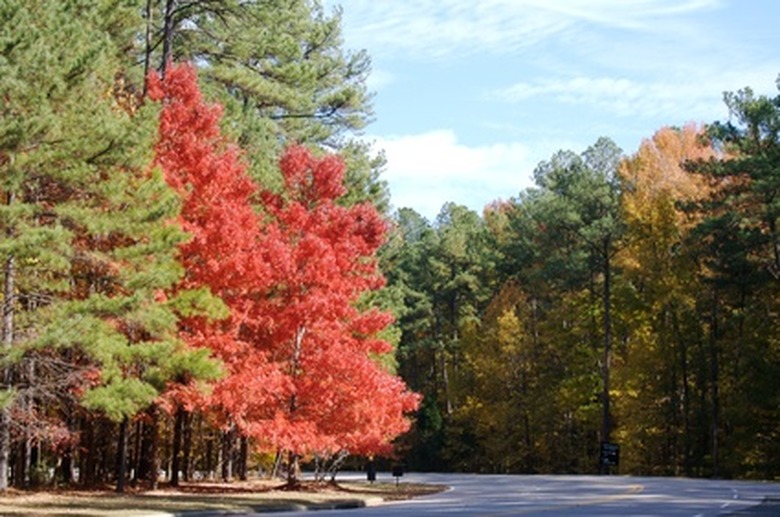Nut Trees In North Carolina
North Carolina is a state with cold winters and trees that produce delicious nuts. With temperatures reaching as low as -45 degrees Fahrenheit in the Appalachian mountains, it's no wonder that the trees in this part of the country are tall and thick; they can store plenty of food for a long winter. Along with the state's fine selection of nuts, berries and apples also thrive in this state's climate.
Pecans
North Carolina is one of the many states where pecans are commercially grown. Pecans grow best along the coastal planes up through Piedmont area. Pecans prefer well-drained soil that is at least 4 feet deep. Pecans are thirsty trees and have high water requirements. Soil pH must be kept between 6 and 6.5 for the tree to thrive, so consistent testing is a must.
Black Walnut
The black walnut, or Juglans nigra Juglandaceae is a scarce and highly coveted tree that was almost cut to extinction. The nuts are used in baked goods and ice creams. Its wood is treasured for solid wood furniture and gun stocks because of its straight grain. The main pest this tree deals with is squirrels. Black walnuts occur naturally in the Appalachians of North Carolina where the average temperature is 45 degrees for at least 170 days.
Butternut
The Butternut, or Juglans cinerea Juglandaceae, is native to North Carolina and especially thrives in well-drained soil. Wild butternuts are found on hillsides and along stream banks. Butternut trees are short compared to most nut trees, reaching an average height of 18 meters and living around 75 years. Butternut produce a sweet, white nut that is used in making maple-butternut candy. The tree requires a long cold snap for fruit production and can withstand temperatures as low as -30 degrees Fahrenheit.
